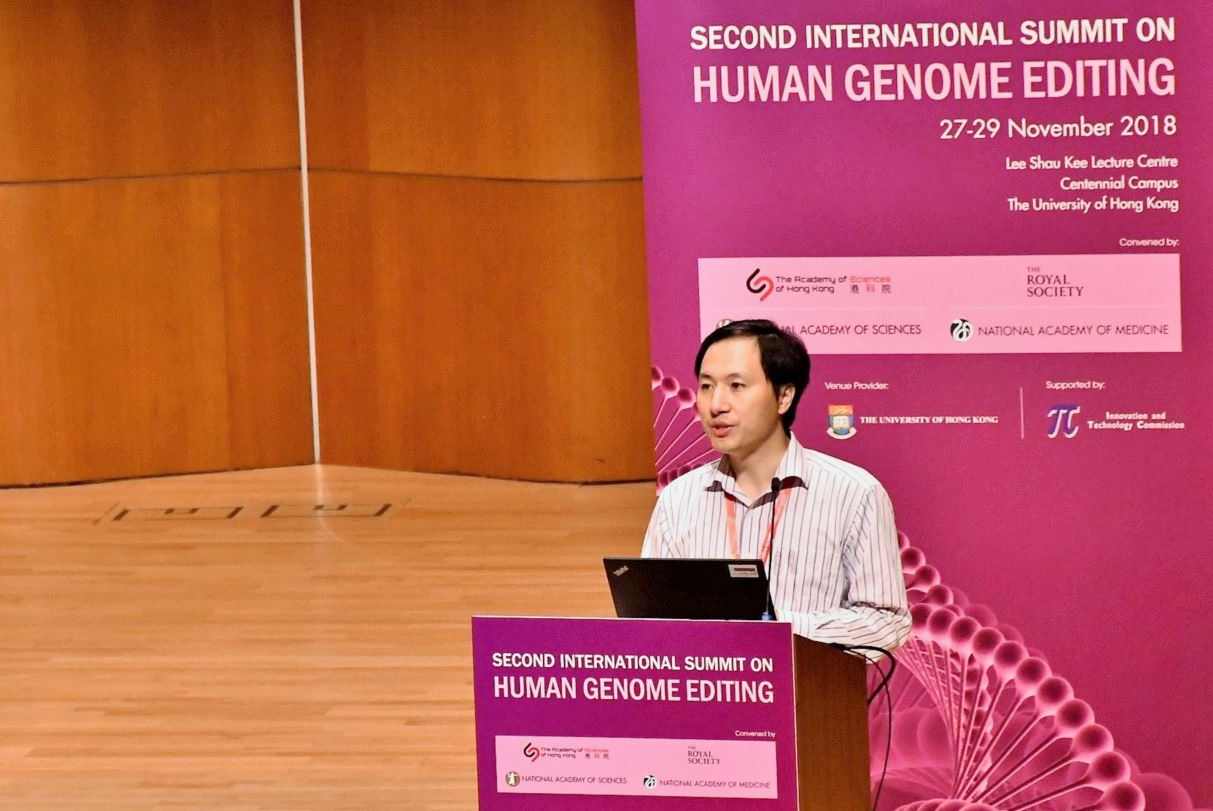Stanford has found that its faculty had “no research, financial or organizational ties” to He Jiankui, the former Stanford postdoctoral fellow who claims to have gene-edited babies. The announcement marks the conclusion of a two-month-long internal review into faculty members’ connections with the Chinese scientist who ignited global controversy.
“Based on all of the available information, the reviewers found that the Stanford researchers were not participants in Dr. He’s research regarding genome editing of human embryos for intended implantation and birth,” the statement reads. The investigation, per University practice, was conducted by an unnamed Stanford faculty member and an outside investigator.
The statement comes one day after the publication of email correspondence between He and applied physics and bioengineering professor Stephen Quake B.S. ’91. The emails revealed that Quake, who served as He’s adviser while He was a postdoctoral fellow in 2011-12, had knowledge of He’s work. Quake received occasional updates, including one confirming the “success[ful]” birth of twins that He claimed to have gene-edited. Quake maintained, though, that he “had nothing to do with [the research]” and “wasn’t involved.”
Bioethics professor William Hurlbut ’68 M.D. ’74 and pediatrics professor Matthew Porteus M.D. ’94 Ph.D. ’94 were also in contact with He, and had varying degrees of knowledge about his progress toward allegedly creating the world’s first gene-edited babies. He would visit Quake, Hurlbut and Porteus several times over the past couple of years.
Hurlbut told The Daily in December that he and Porteus were disapproving of He in their interactions with him, pushing him to consider the ethical implications of the ideas he was suggesting.
“I personally gave him very strong reasons not to do this,” Hurlbut said, “and I know that [Matt] Porteus talked to him [at Stanford] … and was very critical of the idea.”
Hurlbut personally “had no clue that He had already implanted [embryos],” and Porteus told Xconomy news that he was “totally blindsided.”
“The review found that the Stanford researchers expressed serious concerns to Dr. He about his work,” the University statement added. “When Dr. He did not heed their recommendations and proceeded, Stanford researchers urged him to follow proper scientific practices, which included identifying an unmet medical need, securing informed consent, obtaining Institutional Review Board (IRB) approval and publishing the research in a peer-reviewed journal.”
The review’s conclusions are consistent with the emails Quake shared with The New York Times, which indicate that Quake did push for He to obtain ethical approval from Chinese institutions and submit his work to be considered under peer review. Quake was under the impression that He had received IRB approval.
For many, not having direct involvement is not enough to be absolved from blame. Scientists and the public have criticized researchers — which also include Nobel prize winner Craig Mello and He’s
Contact Elena Shao at eshao98 ‘at’ stanford.edu.
